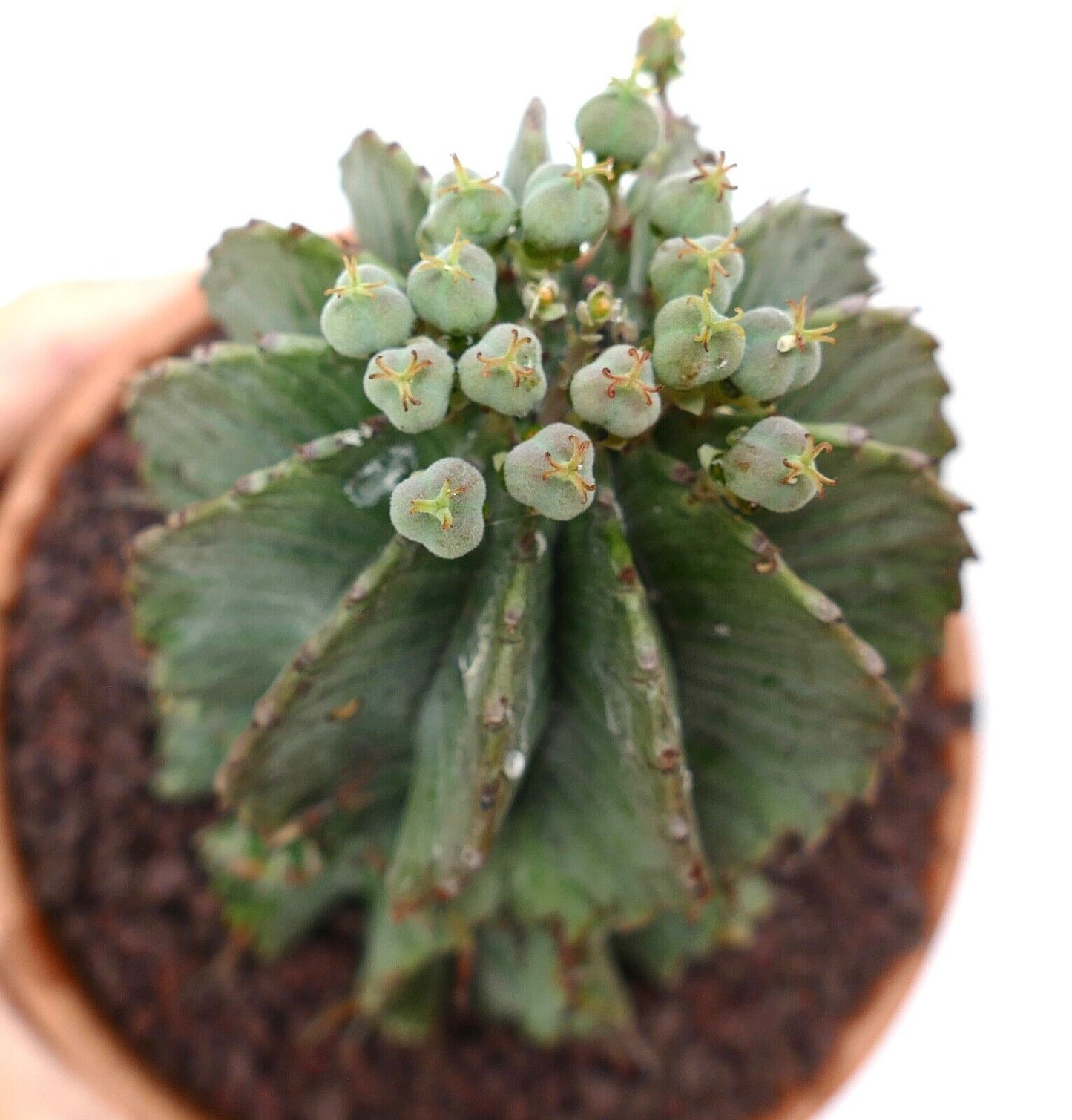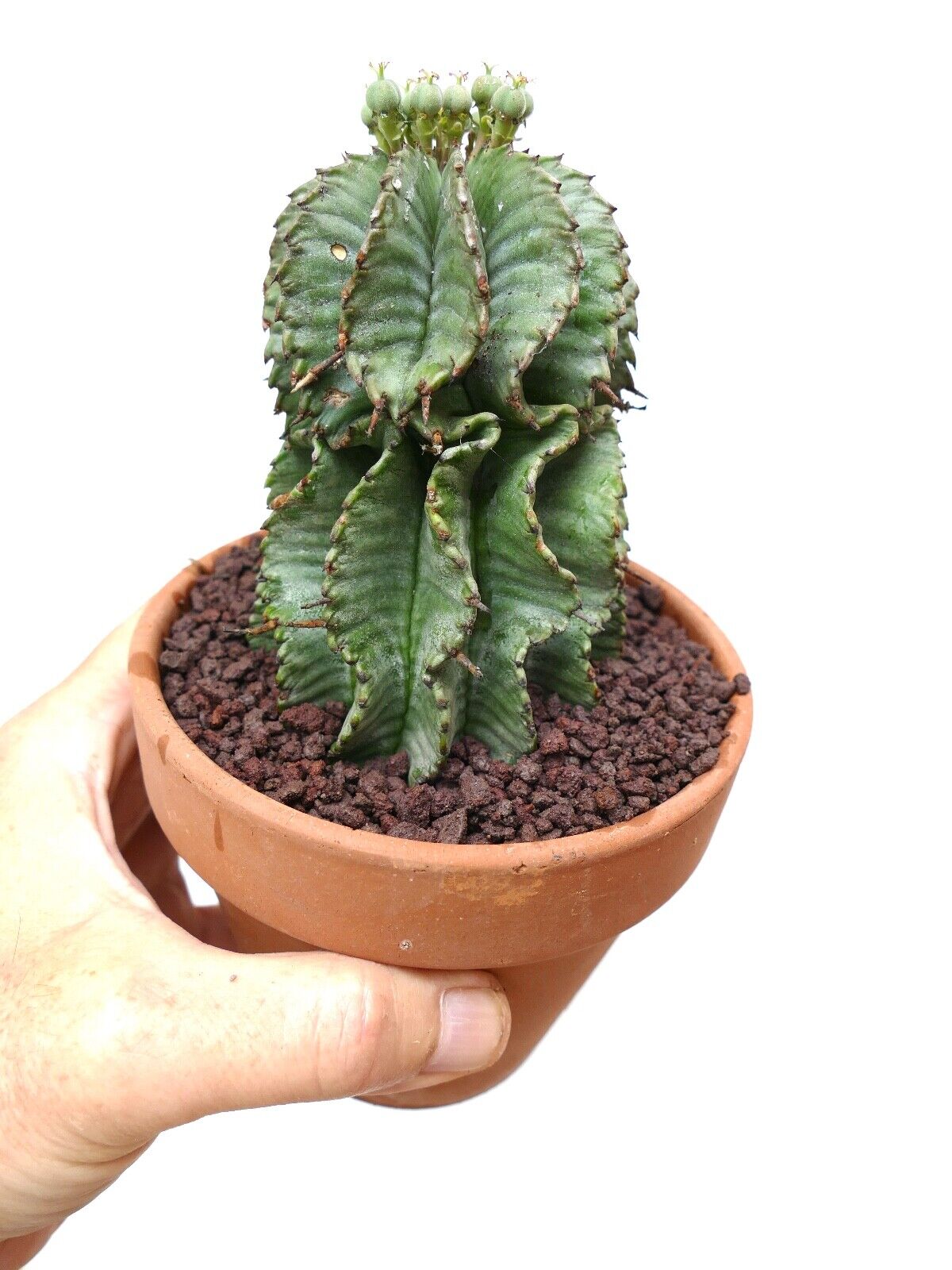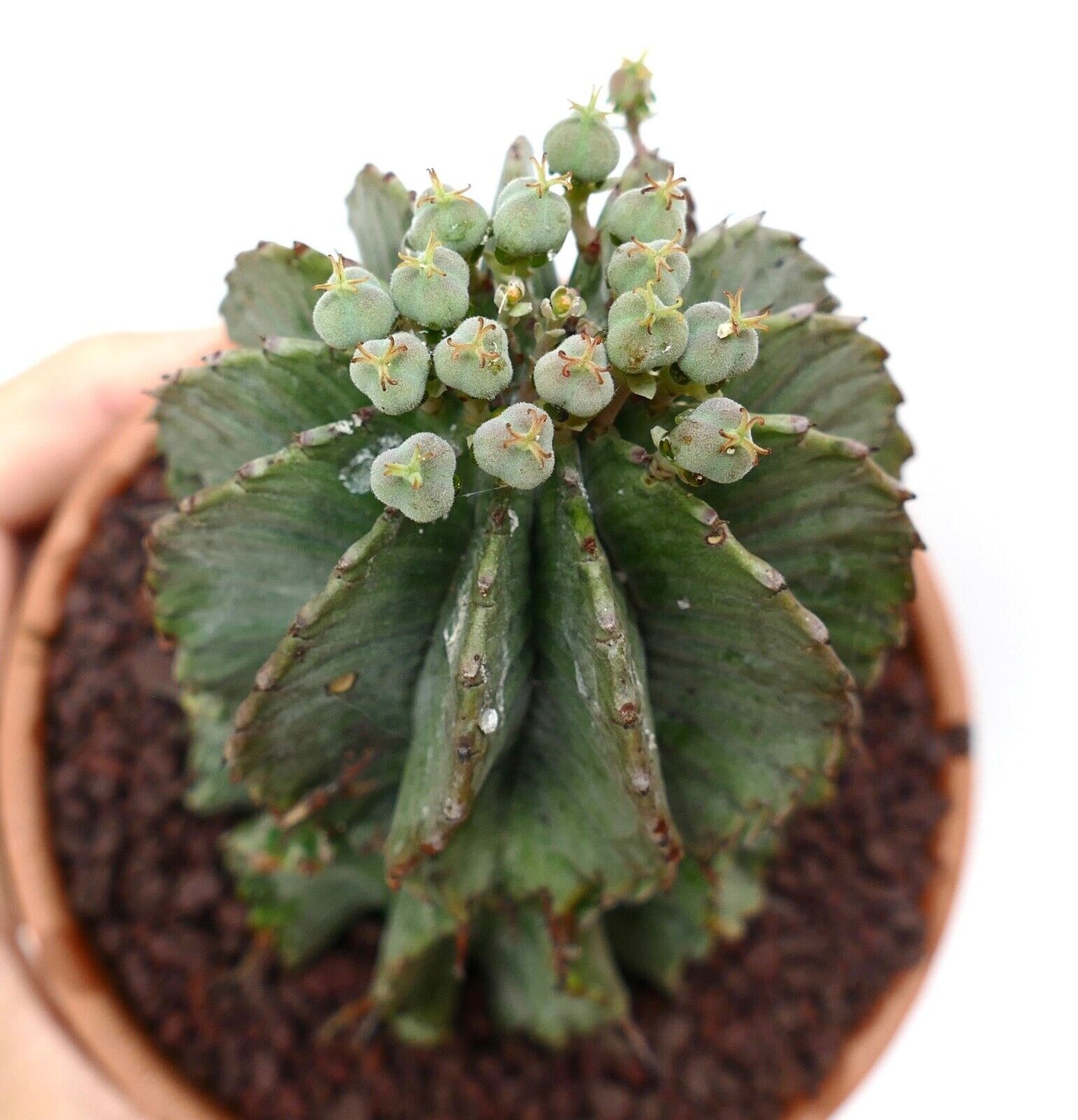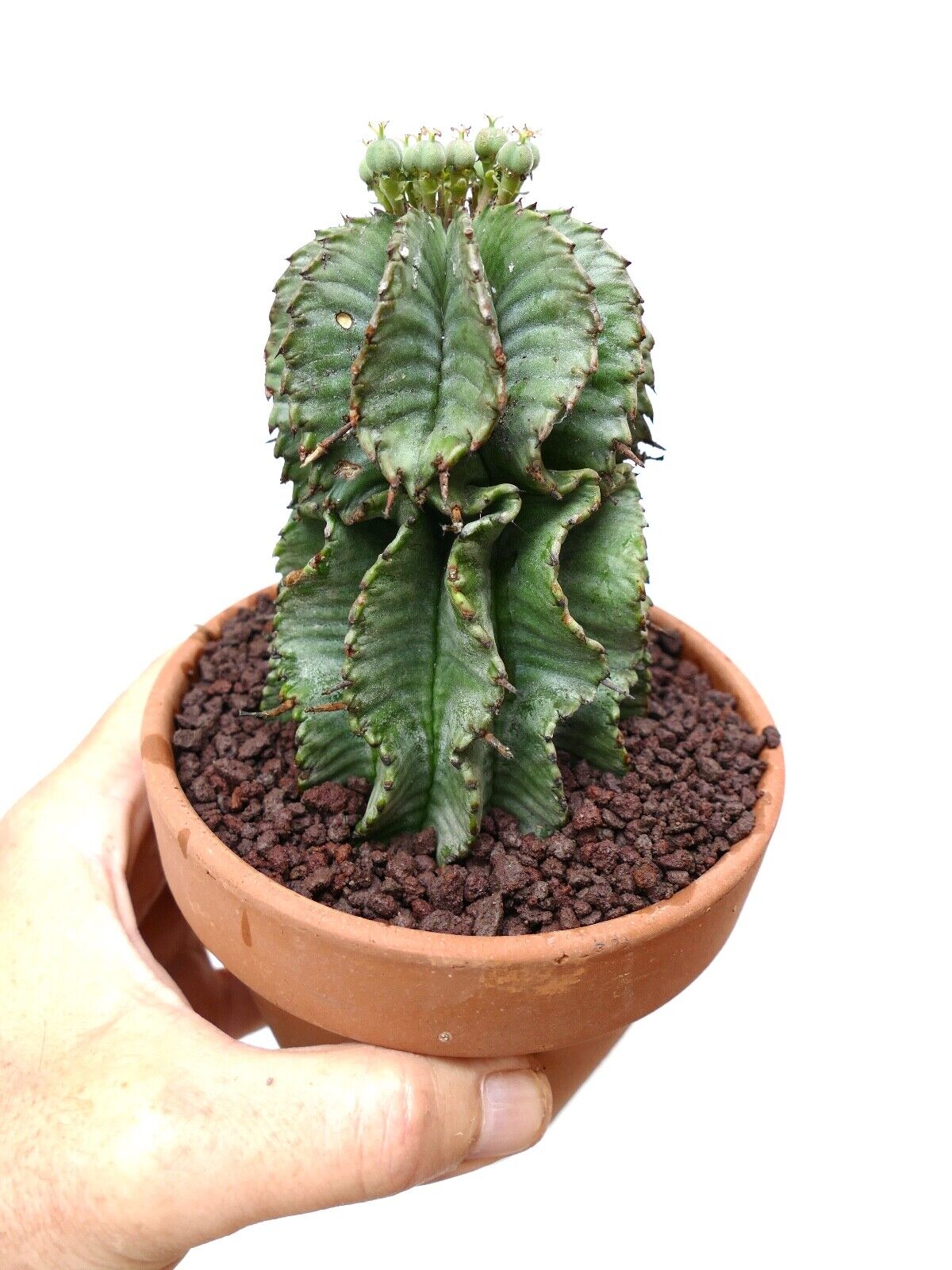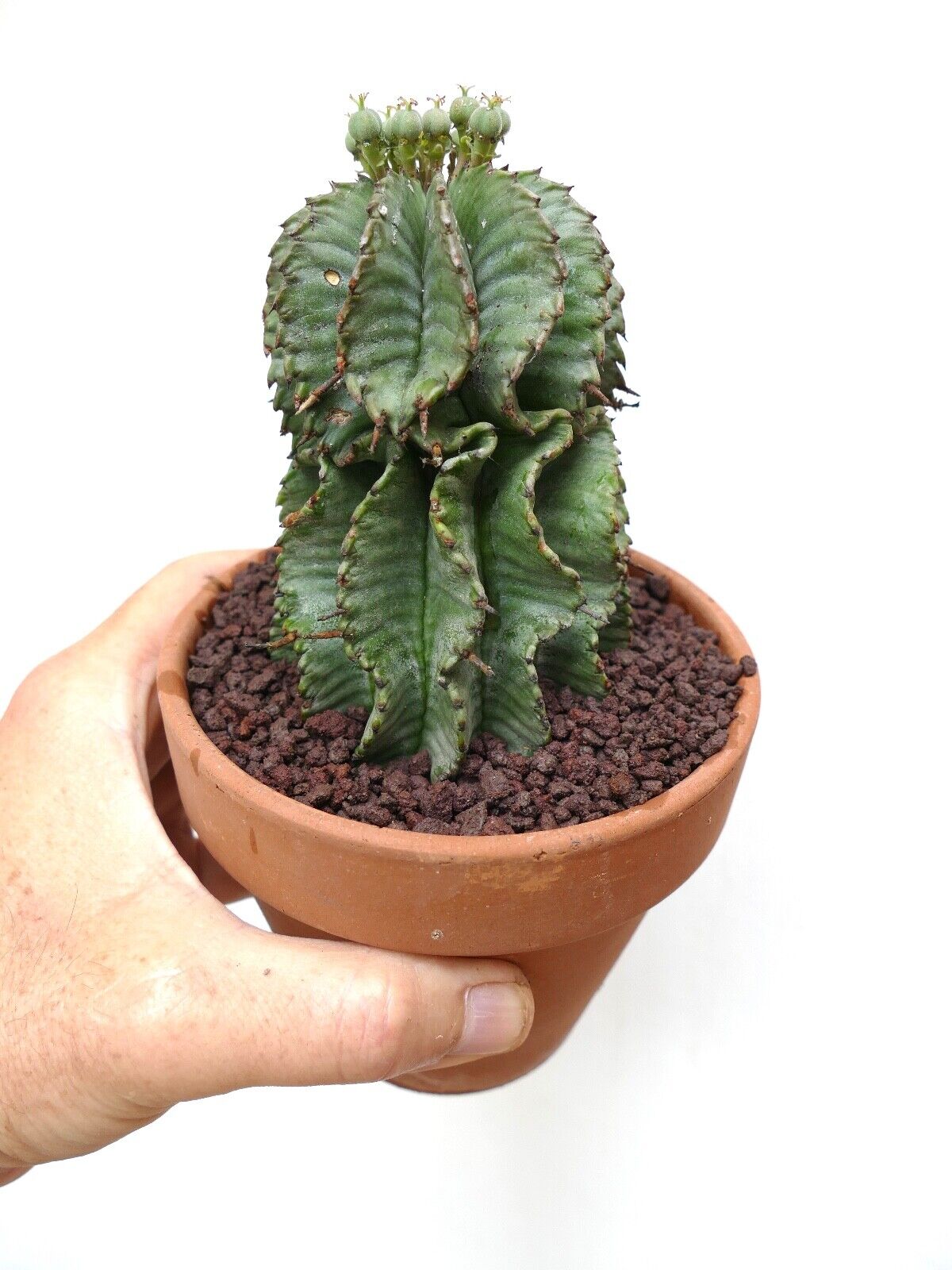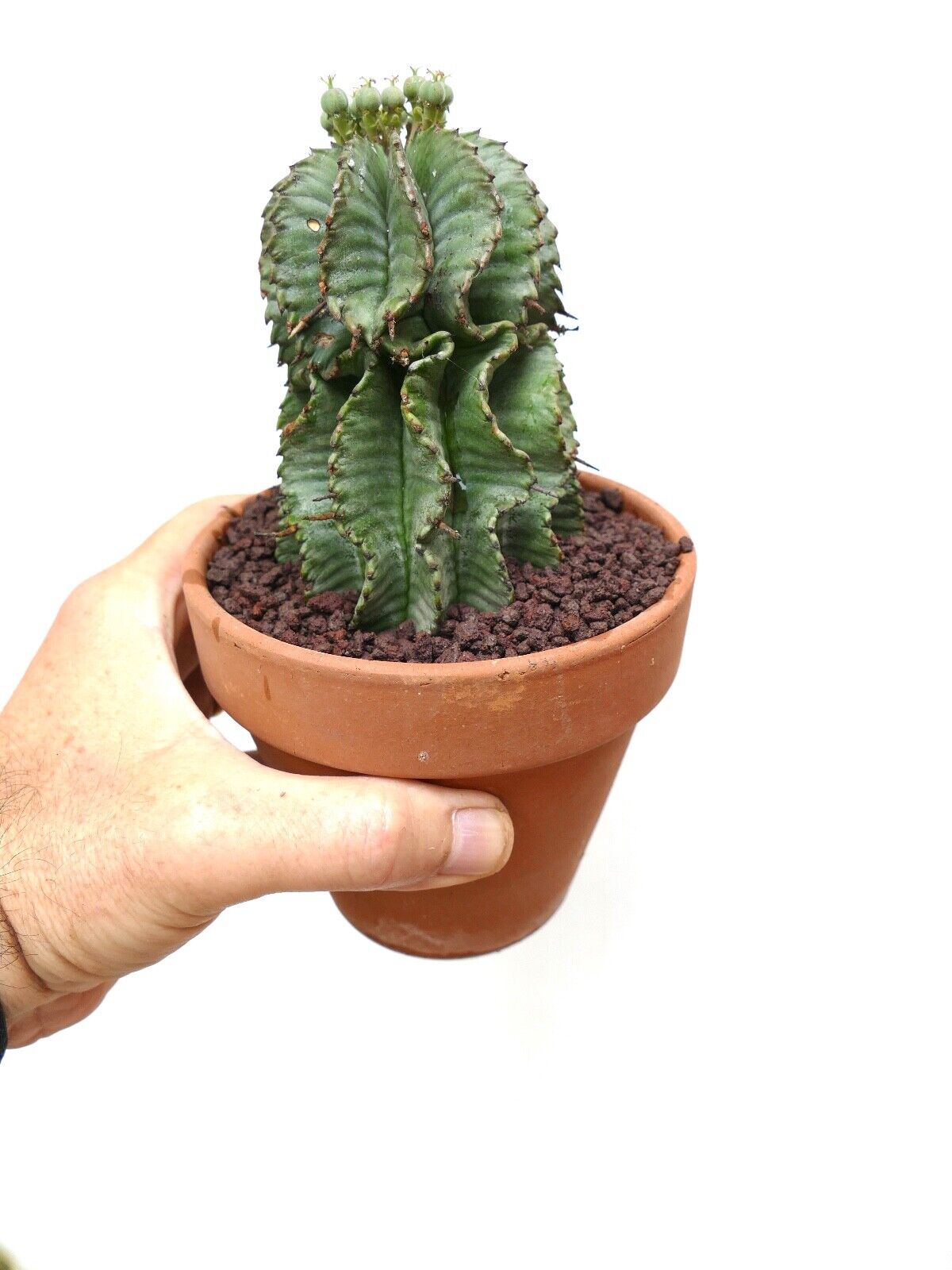Euphorbia horrida OLD SPECIMEN EX private collection
Euphorbia horrida OLD SPECIMEN EX private collection
Couldn't load pickup availability
Product Description
Euphorbia horrida, commonly known as African milk barrel, is a species of succulent plant belonging to the Euphorbia genus. It is native to South Africa and is known for its unique appearance and spiny stems. Here are some key characteristics and information about Euphorbia horrida:
-
Appearance: Euphorbia horrida is a slow-growing succulent that forms a compact, columnar or barrel-shaped stem that can reach a height of up to 30 centimeters (about 12 inches) or more. The stem is covered in numerous spines or thorns that give it a spiky and formidable appearance.
-
Spines: The spines of Euphorbia horrida are long, slender, and arranged in pairs, giving them a characteristic "V" shape. These spines can vary in color, often appearing grayish-green to brown or reddish, depending on the plant's age and growing conditions.
-
Flowers: Euphorbia horrida produces small, inconspicuous flowers that are typically green or yellow-green in color. These flowers are arranged in clusters or cyathia at the tips of the stems. The presence of cyathia, which are unique to the Euphorbia genus, is a distinguishing feature of Euphorbia species.
-
Latex Sap: Like many Euphorbia species, Euphorbia horrida contains a milky latex sap that can be irritating to the skin and mucous membranes. It is important to handle this plant with care and avoid contact with the sap.
-
Habitat: Euphorbia horrida is native to arid regions of South Africa, where it thrives in rocky and desert-like environments. It is adapted to withstand drought and extreme conditions.
-
Cultivation: Euphorbia horrida is cultivated by succulent enthusiasts and collectors for its unique and unusual appearance. It is well-suited for growing in containers or as part of a succulent garden. It requires well-draining soil and plenty of sunlight to thrive.
-
Propagation: This succulent can be propagated from stem cuttings, but it's essential to allow the cut end to callus before planting to prevent rot.
-
Pests and Diseases: Euphorbia horrida is relatively resistant to most pests and diseases. However, it can be susceptible to rot if overwatered or if water accumulates at the base of the plant.
Euphorbia horrida is appreciated for its striking appearance and unique growth habit. Its spiny stems and compact growth make it an attractive addition to succulent collections and xeriscaping projects. As with all Euphorbia species, caution should be exercised when handling this plant due to its latex sap.
SKU:BA-0926-S-15/92
Cultivation
Cultivation
Info and Disclaimers
Info and Disclaimers
Plant height:
Pot diameter:
Picture taken on:
